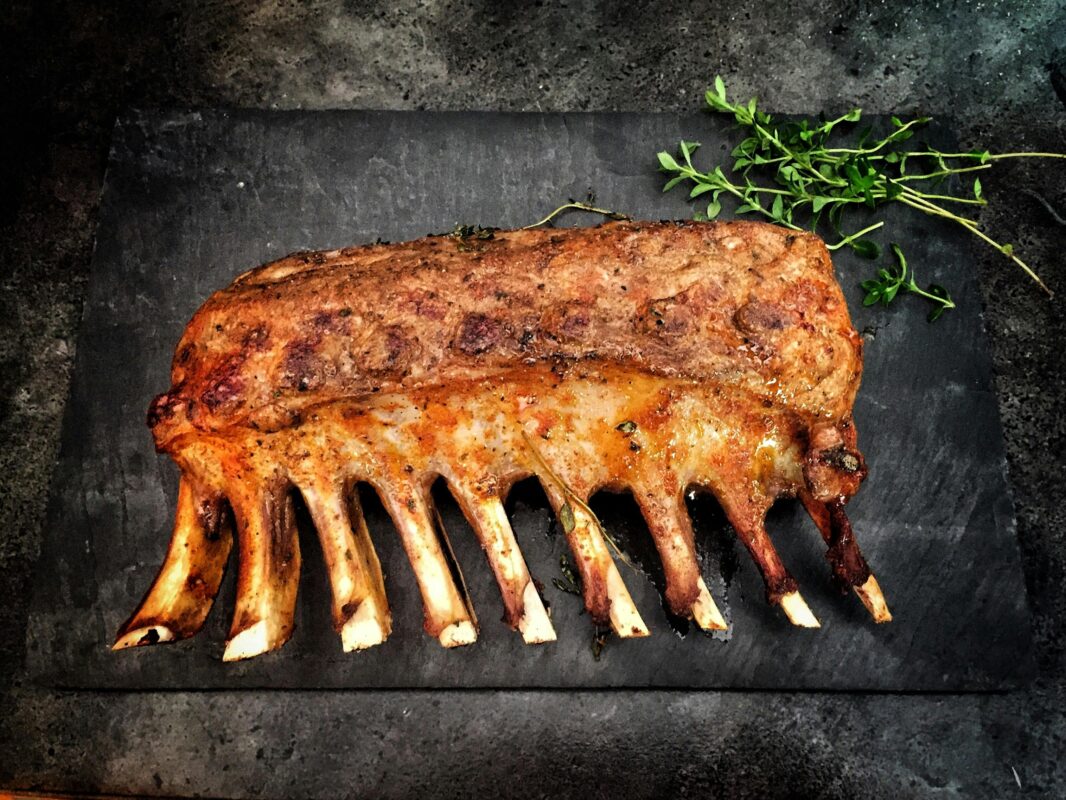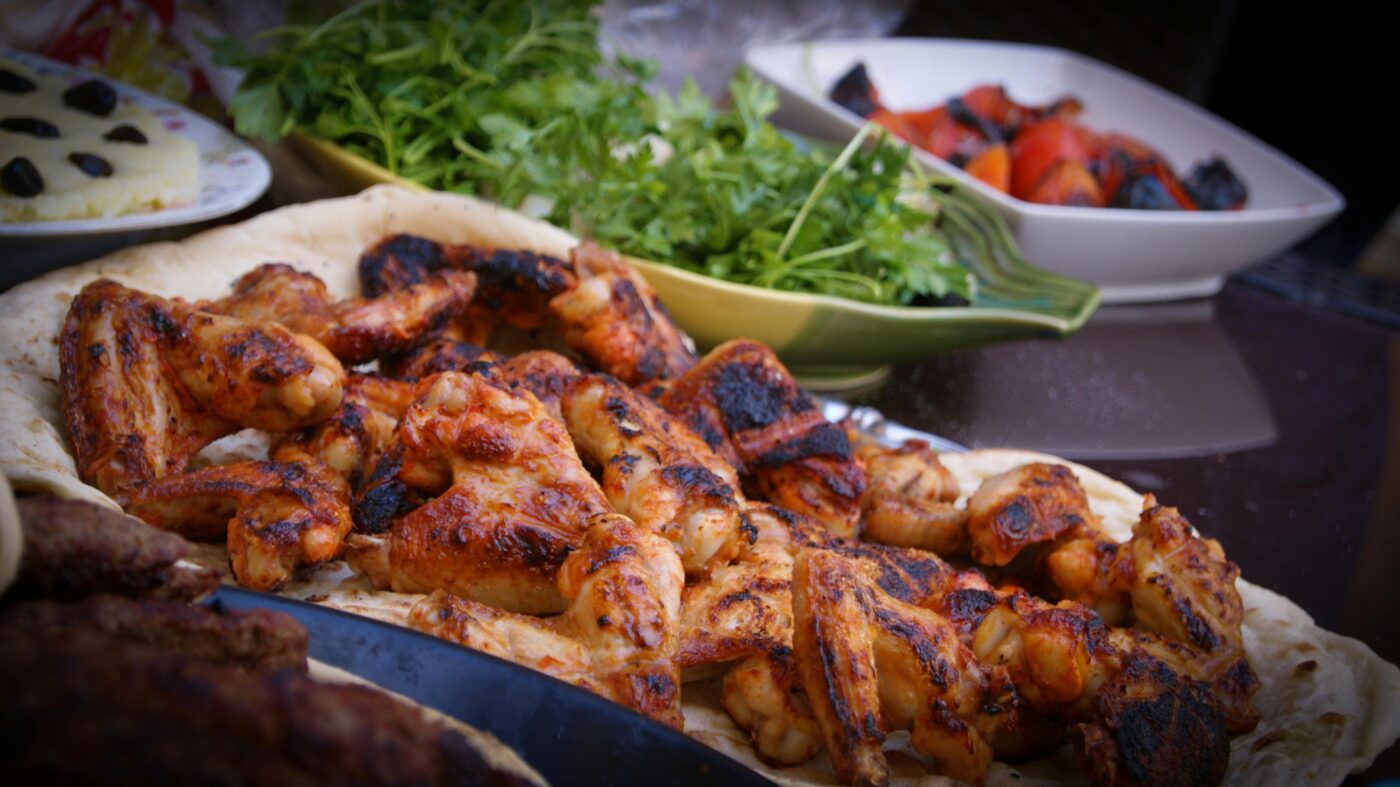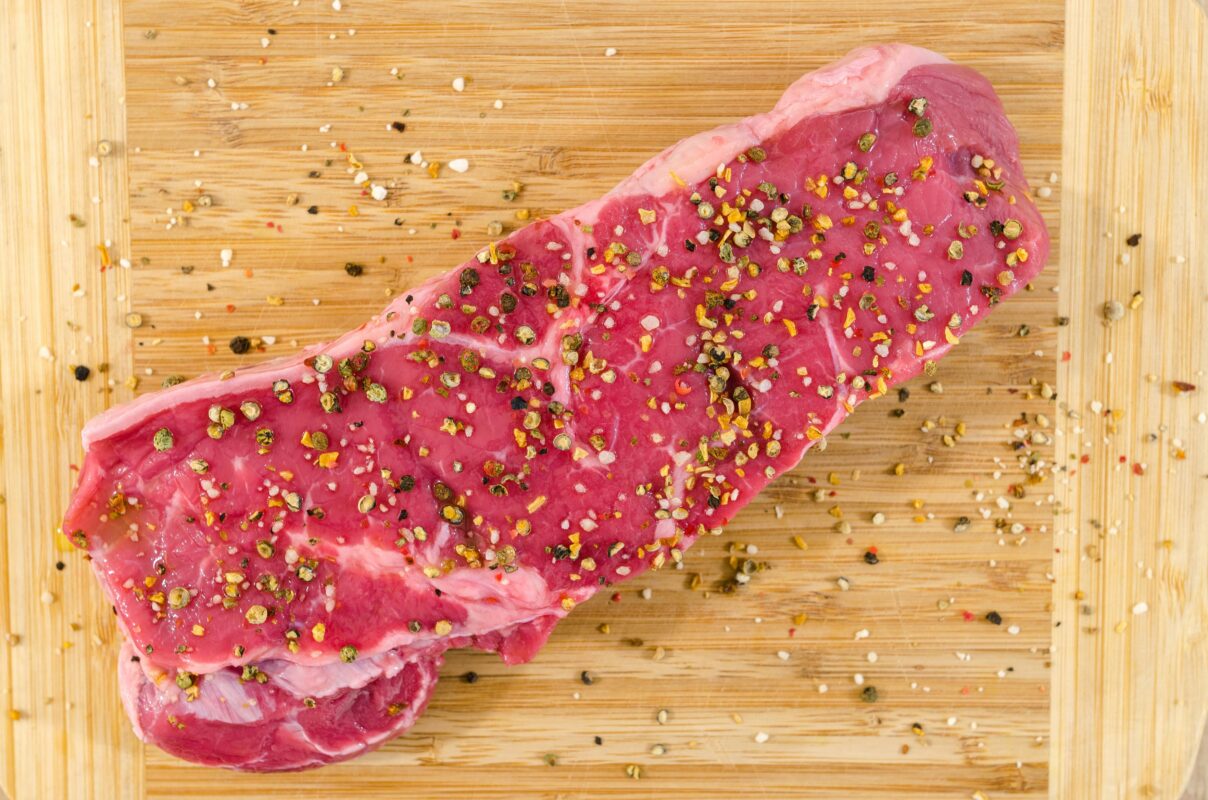Barbecue sauce is a beloved condiment that adds depth and richness to various dishes. Known for its perfect blend of sweet, tangy, and smoky flavors, it enhances everything from grilled meats to vegetables and even snacks. Whether you’re preparing a backyard barbecue or looking for a versatile dipping sauce, a homemade barbecue sauce recipe is a fantastic option.
Crafting your own barbecue sauce allows you to customize the flavors to suit your preferences. From mild and sweet to bold and spicy, the possibilities are endless.
In this guide, we will explore the best barbecue sauce recipe, step-by-step instructions, and tips for creating the perfect barbecue sauce. By the end, you’ll have all the knowledge you need to make a sauce that can elevate any dish.
Why Choose a Homemade Barbecue Sauce Recipe?

Store-bought barbecue sauces may be convenient, but they often lack the personalization and freshness of homemade versions. Making your own barbecue sauce recipe ensures you can control the quality of ingredients and adjust the flavor balance to your liking.
Whether you’re cooking for yourself or serving a crowd, a homemade sauce adds a personal touch that sets your dishes apart.
Essential Ingredients for Barbecue Sauce
Creating the perfect barbecue sauce begins with selecting the right ingredients. Each component plays a crucial role in achieving the ideal balance of flavors. Here’s a breakdown of the essentials:
1. The Base
The base of a barbecue sauce recipe typically consists of ketchup or tomato paste. This ingredient provides the rich, tangy foundation for the sauce. Ketchup is the more common choice due to its natural sweetness and smooth texture. For a thicker, less sweet option, tomato paste works equally well.
2. The Tangy Element
Vinegar is the key to adding a tangy kick to barbecue sauce. Apple cider vinegar is often preferred for its mild sweetness and complexity. However, white vinegar or balsamic vinegar can also be used, depending on your flavor preference.
3. Sweeteners
Sweetness balances the tanginess and adds depth to the sauce. Common sweeteners include brown sugar, honey, molasses, or maple syrup. For a bold and rich flavor, molasses is a standout choice, while honey provides a lighter, floral sweetness.
4. The Smoky Touch
Liquid smoke or smoked paprika is essential for creating that signature barbecue flavor. These ingredients replicate the smoky essence of outdoor grilling, even when the sauce is used indoors.
5. Spices and Seasonings
Garlic powder, onion powder, cayenne pepper, black pepper, and chili powder are staples for seasoning. Adjusting the quantity of these spices allows you to create a sauce that ranges from mild to fiery.
6. Optional Add-Ins
For a unique twist, consider adding Worcestershire sauce, mustard, or citrus juice. These ingredients introduce complexity and enhance the overall flavor profile.
Read More
How To Cook Frozen Broccoli
How To Cook Chicken Tenderloins in Oven

Step-by-Step Instructions for Making Barbecue Sauce
Once you’ve gathered your ingredients, it’s time to bring them together into a delicious barbecue sauce. Follow these steps for a foolproof recipe:
1. Prepare the Ingredients
Begin by measuring all your ingredients to ensure a smooth cooking process. This includes your base, vinegar, sweeteners, spices, and any optional add-ins.
2. Combine Ingredients in a Saucepan
In a medium-sized saucepan, mix the ketchup (or tomato paste), vinegar, and sweeteners over medium heat. Stir the mixture thoroughly to ensure all components are well blended.
3. Add the Seasonings
Once the base ingredients are combined, add your spices and seasonings. Adjust the quantities based on your flavor preference, starting with smaller amounts and tasting as you go.
4. Simmer the Sauce
Reduce the heat to low and let the sauce simmer for 15–20 minutes. Stir occasionally to prevent sticking and allow the flavors to meld together. During this stage, the sauce will thicken and develop its signature richness.
5. Taste and Adjust
After simmering, taste the sauce and adjust the flavors as needed. Add more vinegar for tanginess, sweeteners for sweetness, or spices for heat. If the sauce is too thick, a small amount of water or broth can be added.
6. Cool and Store
Once the sauce reaches your desired consistency, remove it from the heat and let it cool. Transfer the barbecue sauce to an airtight container and refrigerate. Properly stored, it can last up to two weeks.
Customizing Barbecue Sauce to Your Taste
One of the best aspects of a barbecue sauce recipe is how versatile it is. With a few tweaks, you can adjust the flavors to suit your preferences or complement the dish you’re preparing. Here are some ideas to customize your sauce:
1. Adjusting the Sweetness
If you prefer a sweeter sauce, increase the amount of honey, brown sugar, or molasses. For a more natural sweetness, consider blending in fruit purees such as pineapple, peach, or apple. These additions not only enhance the sweetness but also add a fruity undertone that works well with grilled dishes.
2. Enhancing the Heat
For those who love a kick of heat, cayenne pepper, red pepper flakes, or hot sauce can be added. Experiment with different chili powders or even fresh chopped chilies for a spicier, more robust flavor.
3. Experimenting with Acidity
If tanginess is your preference, increase the amount of vinegar or add a squeeze of citrus juice. Apple cider vinegar provides a mild, fruity tang, while balsamic vinegar or lemon juice creates a sharper flavor.
4. Boosting Smokiness
The smoky flavor is a hallmark of barbecue sauce. To enhance this element, add extra smoked paprika or a dash of liquid smoke. For an even bolder taste, use chipotle peppers in adobo sauce, which combine smokiness and spice.
5. Adding a Gourmet Touch
To create a gourmet version of your barbecue sauce recipe, incorporate ingredients like bourbon, espresso powder, or dark chocolate. These additions introduce depth and sophistication, elevating your sauce to restaurant quality.
Popular Barbecue Sauce Variations

Barbecue sauces come in many regional styles, each with unique characteristics. Here are a few popular variations to inspire your next creation:
1. Kansas City Style
Known for its thick and sweet flavor, this sauce relies heavily on ketchup, molasses, and brown sugar. It’s perfect for ribs, brisket, and other slow-cooked meats.
2. Carolina Style
This vinegar-based sauce is tangy and often includes mustard. It pairs exceptionally well with pork, cutting through the richness with its zesty flavor.
3. Texas Style
Texas barbecue sauce is bold, smoky, and spicy. It features tomato as a base, with plenty of chili powder and black pepper for a kick.
4. Alabama White Sauce
A mayonnaise-based barbecue sauce, Alabama white sauce is tangy and creamy. It’s traditionally used for chicken but also works well as a salad dressing or dip.
5. Memphis Style
Memphis barbecue sauce is thinner than Kansas City style and has a balanced combination of sweet and tangy flavors. It often includes a touch of Worcestershire sauce for added depth.
Best Uses for Barbecue Sauce
Barbecue sauce is incredibly versatile and can be used in various ways beyond grilling. Here are some creative ideas to make the most of your barbecue sauce recipe:
1. Marinades and Glazes
Barbecue sauce works wonderfully as a marinade for meats like chicken, pork, and beef. The acidity helps tenderize the meat while imparting rich flavor. It’s also excellent as a glaze, brushed onto meats during the last few minutes of cooking for a caramelized finish.
2. Sandwiches and Burgers
Use barbecue sauce as a topping for burgers or sandwiches to add a smoky, tangy kick. Pulled pork or chicken sandwiches are especially delicious when paired with a generous dollop of barbecue sauce.
3. Pizza Base
Swap traditional tomato sauce for barbecue sauce on pizza. It pairs well with toppings like chicken, bacon, onions, and cheese, creating a smoky, savory twist on a classic dish.
4. Dipping Sauce
Barbecue sauce makes an excellent dip for fries, onion rings, chicken tenders, or even vegetable sticks. You can also mix it with mayonnaise or sour cream for a creamy variation.
5. Baked Beans or Casseroles
Stir barbecue sauce into baked beans or casseroles for added depth and richness. Its smoky sweetness enhances the flavors of hearty, comfort food dishes.
Tips for Storing and Using Barbecue Sauce
Proper storage ensures your homemade barbecue sauce remains fresh and flavorful. Here’s how to handle it:
1. Storage Instructions
Store your barbecue sauce recipe in a clean, airtight container, preferably a glass jar. Refrigerate it immediately after cooling to preserve its freshness. When properly stored, homemade barbecue sauce can last up to two weeks.
2. Freezing Barbecue Sauce
If you’ve made a large batch, consider freezing portions for later use. Divide the sauce into freezer-safe containers or ice cube trays for easy portioning. Frozen barbecue sauce can last up to three months.
3. Reheating Tips
When reheating, warm the sauce gently over low heat while stirring to prevent scorching. Avoid using a microwave, as uneven heating can alter the sauce’s texture and flavor.
4. Labeling and Dating
Always label your containers with the date of preparation to ensure you use the sauce within its optimal shelf life. This practice helps prevent waste and maintains the sauce’s quality.
Conclusion
A great barbecue sauce recipe is the heart of any flavorful barbecue experience. By mastering the basics and experimenting with customizations, you can create a sauce that perfectly complements your taste and enhances your dishes.
From adjusting sweetness or spiciness to exploring regional styles like Kansas City or Carolina, the possibilities are endless. Whether you’re using it as a marinade, glaze, dip, or pizza base, barbecue sauce brings a smoky, tangy depth to any meal.
Proper storage ensures your sauce remains fresh, making it a handy addition to your kitchen arsenal. Whether you’re grilling meats, roasting vegetables, or preparing hearty casseroles, your homemade barbecue sauce can elevate your cooking to a new level.
Now that you have all the knowledge to craft, customize, and use your barbecue sauce, it’s time to fire up the grill and let your culinary creativity shine!
